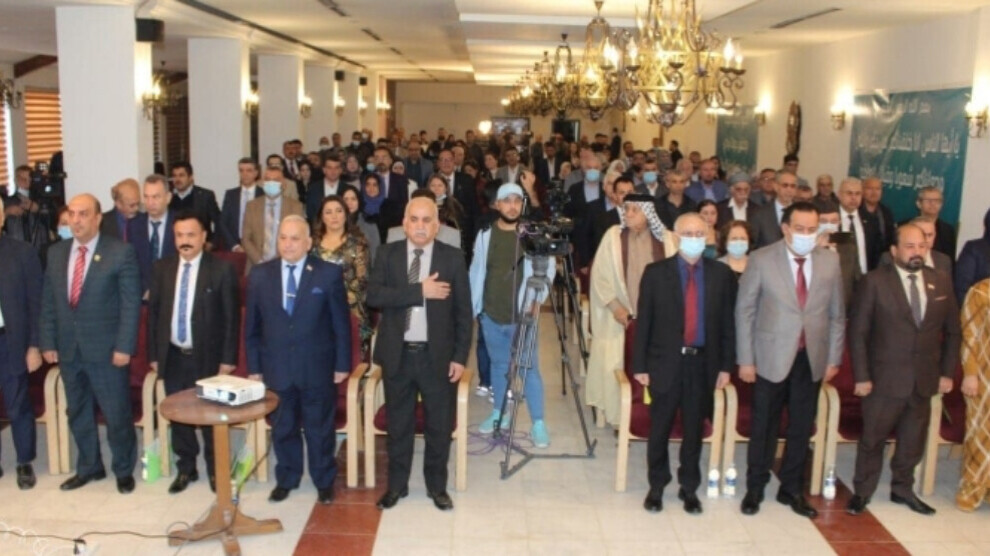Kurdish-Arab Conference in Baghdad ends with final declaration
In the final declaration of the Kurdish-Arab Conference held in Baghdad the need for "dialogue" and "clarity" was emphasized.
In the final declaration of the Kurdish-Arab Conference held in Baghdad the need for "dialogue" and "clarity" was emphasized.

A conference called 'Towards a Successful Kurdish-Arab Dialogue' was held in Baghdad.
Iraqi Feyli Kurds, Standar Association, Shengal Youth Humanitarian Organization and the Europe-based Friendship Association attended the conference, which was led by the Academy of Democratic Politics and Thought and supported by the Freedom Association (Komeleya Azadi).
The conference, which lasted throughout Saturday, ended with the approval of a 11-item final declaration.
The declaration reads as follows:
“* The Congress will recognise and work for the recognition of all identities, ideologies, nations, cultures and sects in Iraq in particular, and in the Middle East and North Africa in general.
* The Congress insists that the solution to all problems and conflicts in Iraq and the Middle East must be found through dialogue, not war. This also requires the project of a democratic nation-state.
* The Congress will work to preserve and develop the common cultural and democratic social and political values of the peoples of the region.
* The Congress will focus on the historically existing cultural dialogue between the people and major faiths in Iraq.
* The Congress will promote equality between women and men in all fields. It also rejects all forms of violence against women. It will be important for women to be active in all areas.
* The Congress rejects the Neo-Ottomanism concept that the Turkish state wants to establish in the region and its use of religion as a tool for its own interests.
* The division of the regional states and the recognized borders as well as the establishment of the Iraqi state took place at the request of the winning parties in the First World War. This situation limited the role of the local people.
* Individual power, dictatorship, partisanship and centralized politics have failed to build a citizenship state based on Iraqi national identity.
* Democracy, federalism, decentralized administration and structural self-government in the country will be the basis of development and freedoms.
* A permanent state requires equality between Arab, Kurdish and other elements. There won't be any components to ignore.
* Need for dialogue and clarity. Any problem should be resolved by legal and constitutional means."